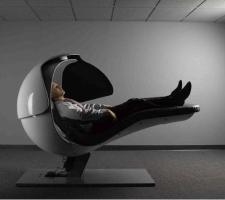November 3, 2014
BIM adoption set to soar in UK and US over next two years, claims report
 Building owners are embracing building information modelling (BIM) as a powerful technology benefitting the design process, managing project schedules, controlling costs and minimizing project errors, according to the recent McGraw-Hill Construction SmartMarket Report “The Business Value of BIM for Owners”. The latest report focuses on the business value of BIM from the perspective of building owners in the United States and United Kingdom for whom the technology has been deployed. Initially adopted as a design tool and later evolving into an important tool for contractors, its adoption among building owners is expanding, the report claims, and that building owners are becoming more directly involved as “their power is even greater to align BIM use with their specific goals, engage more effectively with all stakeholders and extend the value of BIM beyond construction into facility management.” The study claims that 40 percent of US owners and 38 percent of UK owners expect that more than 75 percent of their projects will involve the technology in just two years.
Building owners are embracing building information modelling (BIM) as a powerful technology benefitting the design process, managing project schedules, controlling costs and minimizing project errors, according to the recent McGraw-Hill Construction SmartMarket Report “The Business Value of BIM for Owners”. The latest report focuses on the business value of BIM from the perspective of building owners in the United States and United Kingdom for whom the technology has been deployed. Initially adopted as a design tool and later evolving into an important tool for contractors, its adoption among building owners is expanding, the report claims, and that building owners are becoming more directly involved as “their power is even greater to align BIM use with their specific goals, engage more effectively with all stakeholders and extend the value of BIM beyond construction into facility management.” The study claims that 40 percent of US owners and 38 percent of UK owners expect that more than 75 percent of their projects will involve the technology in just two years.






















October 17, 2014
The solution to complex issues like green building is to become more sophisticated
by Paul Goodchild • Comment, Environment, Facilities management, Workplace design
(more…)